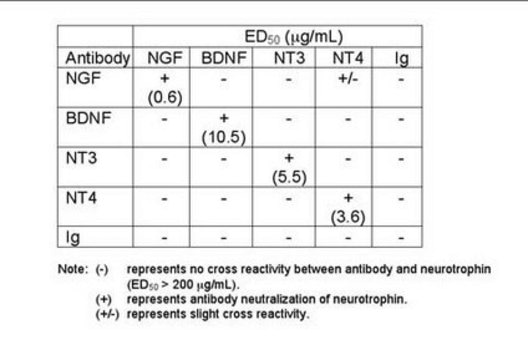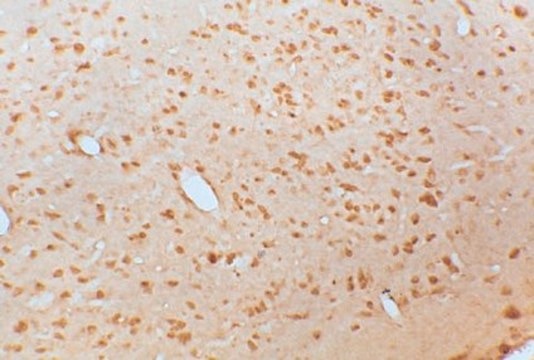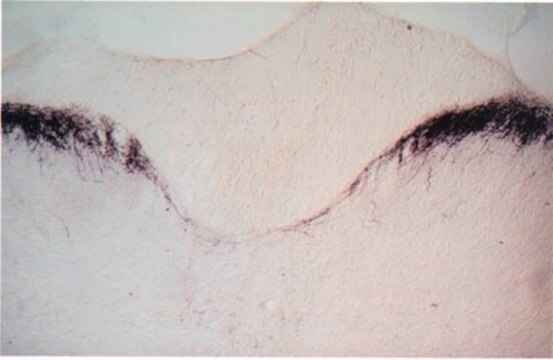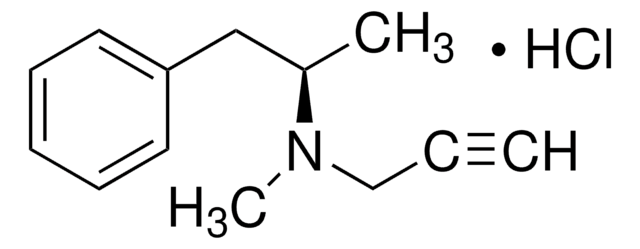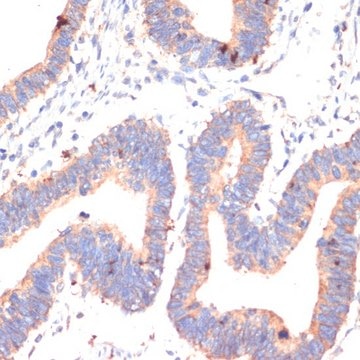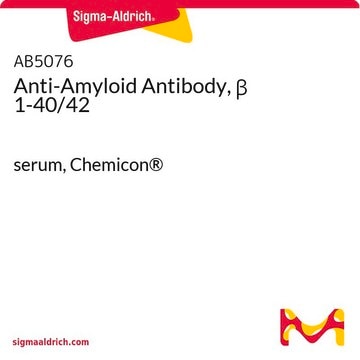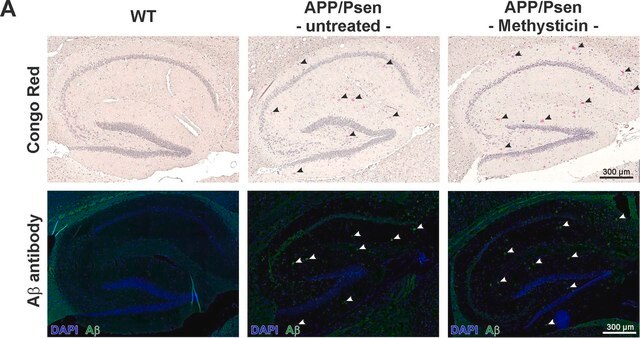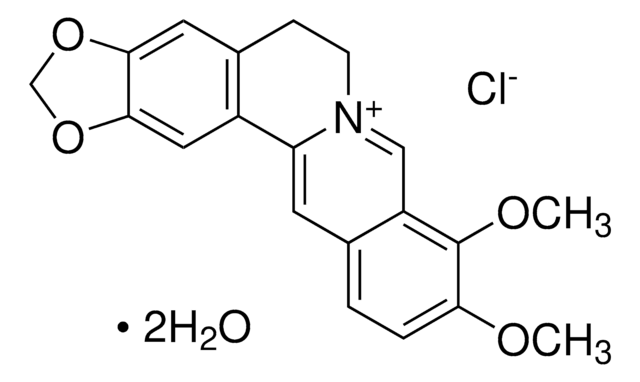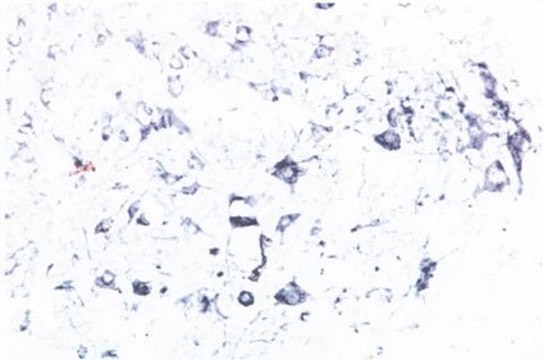AB1513P
Anti-Brain Derived Neurotrophic Factor Antibody
Chemicon®, from sheep
Synonym(s):
BDNF
About This Item
Recommended Products
biological source
sheep
Quality Level
antibody form
purified immunoglobulin
antibody product type
primary antibodies
clone
polyclonal
species reactivity
human, rat, chicken
manufacturer/tradename
Chemicon®
technique(s)
ELISA: suitable
immunohistochemistry: suitable
western blot: suitable
NCBI accession no.
UniProt accession no.
shipped in
dry ice
target post-translational modification
unmodified
Gene Information
human ... BDNF(627)
Specificity
Immunogen
Application
Immunoblotting: 1-5 μg/mL we recommend preparing the BDNF samples for western blot by the method of Semba-Katoh, R et.al (J. Neurochem. 69(1):34-42, 1997) because BDNF is not easily extracted in standard buffers. Dissected tissues should be homogenized in 10 volumes of 100mM phosphate buffer containing 1mM EDTA, 2M guanidine hydrochloride (pH7.2), and three protease inhibitors, 10mM N-ethylmaleimide, 0.36mM pepstatin, and 1mM PMSF. Homogenates are then sonicated and centrifuged at 46K x g for 30 minutes at 4°C. BDNF migrates as ~12-18kDa monomer, with a 28-30kDa homodimer in most samples.
ELISA: 1-5 μg/mL
Inhibition of biological activity in vitro: Complete inhibition of BDNF activity on embryonic chick sensory neurons occurs at 1-5 μg/mL. Biological inhibition protocols can be found in Finn et al. (J. Neurocytol. 15:169-176, 1986).
BIOLOGICAL ACTIVITY: Neutralizes BDNF, but not other neurotrophins.
Use neat for in vivo studies.
Optimal working dilutions must be determined by end user.
Neuroscience
Neurochemistry & Neurotrophins
Neuroinflammation & Pain
Target description
Physical form
Storage and Stability
Analysis Note
Brain tissue
Other Notes
Legal Information
Disclaimer
Not finding the right product?
Try our Product Selector Tool.
recommended
wgk_germany
WGK 3
flash_point_f
Not applicable
flash_point_c
Not applicable
Certificates of Analysis (COA)
Search for Certificates of Analysis (COA) by entering the products Lot/Batch Number. Lot and Batch Numbers can be found on a product’s label following the words ‘Lot’ or ‘Batch’.
Already Own This Product?
Find documentation for the products that you have recently purchased in the Document Library.
Our team of scientists has experience in all areas of research including Life Science, Material Science, Chemical Synthesis, Chromatography, Analytical and many others.
Contact Technical Service